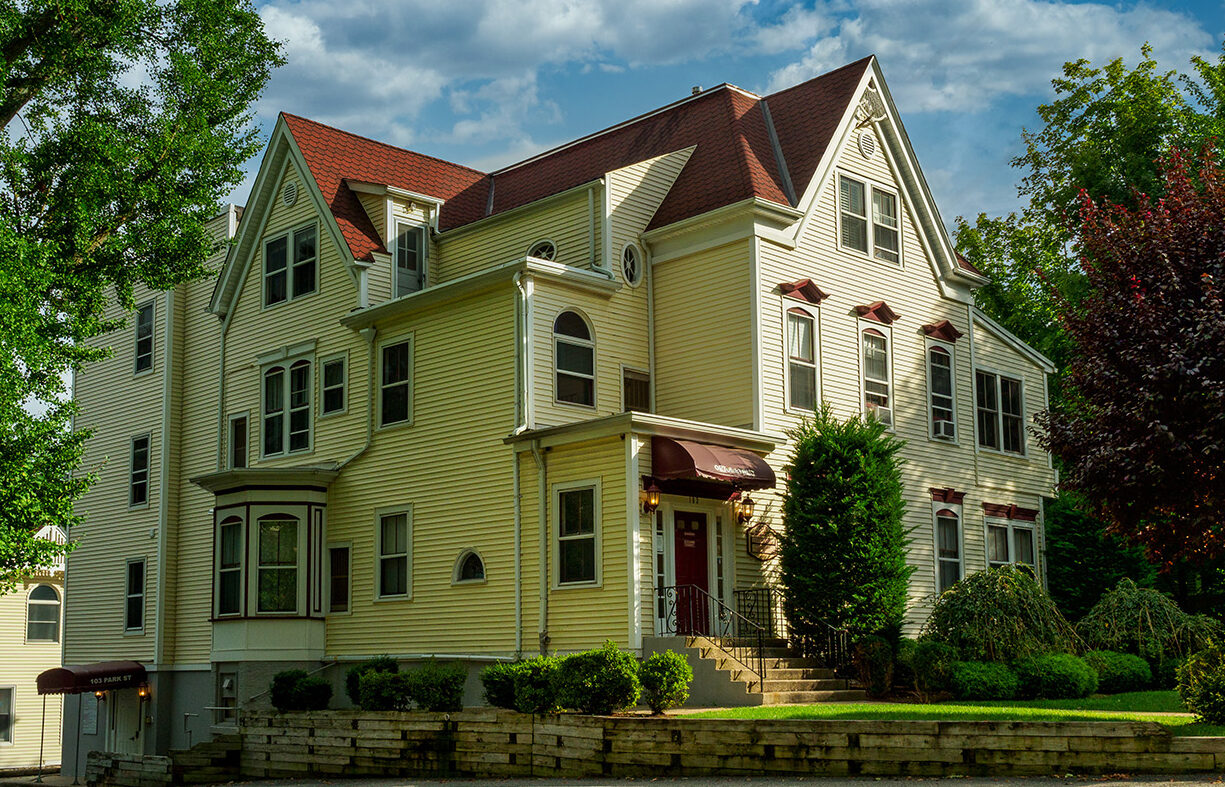
Substance Abuse & Addiction Recovery
Begin Your Path to Recovery: Individual Addiction Counseling in Montclair, NJ
Addiction is an immensely personal and painful struggle that can rob you of your full potential, keeping you trapped in circumstances that you haven’t intentionally chosen for yourself. At LeoNita’s Counseling in Montclair, NJ, we provide compassionate and non judgmental support for those seeking a healing path away from substance abuse and addiction. Our aim is to empower you to rise above self-defeating behaviors, find your personal power, and live your full potential.
What is Addiction?
Addiction is a chronic brain disease leading to compulsive substance use despite harmful consequences. It’s characterized by the inability to manage cravings and failure to meet responsibilities at work, school, or home. There are infinitely many substances that people can become addicted to, with the following being some of the most common:
- Alcohol
- Nicotine
- Opiods and other prescription drugs
- Methamphetamine
- Cocaine
- Heroin
In addition to substance addictions, there are now more than ever potentially addictive processes available to us, including:
- Pornography
- Smart phone or internet
- Food
- Gaming
- Gambling
- Shopping
Process, or behavior, addiction varies from substance addiction in some ways, such as some behaviors are not practicable to quit. A person with an addictive relationship to food, for example, cannot carve a path to health by ceasing to eat altogether. In other ways, this type of addiction is strikingly and surprisingly similar to substance addiction, and it is no less serious.
Approaches to Healing Addictions
As with all of life’s struggles, each person’s path will look different, and there are no silver bullets. Addiction can cause us to think in very black-and-white terms–this or that, all or nothing–but the way to healing is almost always multimodal. Do you go to 12-step meetings? Other group programs? Therapy? Inpatient or outpatient treatment center? The answer could be yes to all of these if they resonate with you. Let’s explore the most common choices.
Treatment Centers
Treatment, or rehab, centers represent the highest level of intervention for substance use disorders (SUDs). There is quite a bit of nuance, but these centers generally fall into three categories:

- Inpatient rehab: Patients check in and stay for 30, 60, or 90 days, which is why these are sometimes called residential programs. Care is often medical in nature and equipped to assist patients through withdrawal or detox. Additionally, residential treatment facilities may offer help for dual diagnosis (SUD plus mental illness) patients as well as assistance beyond the reach of the program, such as sober housing.
- Outpatient rehab: In outpatient programs, patients are expected to attend for a certain number of hours per week but will remain living at home and going to work or school. When they’re at the facility, they may attend 12-Step meetings, group sessions, or individual therapy.
- Hybrid programs: Intensive outpatient and partial hospitalization treatment options can provide additional structure and medical-level care beyond typical outpatient options, but without the cost and disruption of residential treatment.
12-Step Programs
Better known as Alcoholics Anonymous (or Narcotics Anonymous, or Overeaters Anonymous, or…they really have a group for everything), these programs began during the Great Depression and offer a meeting format, providing fellowship nowadays to millions. “The rooms,” as 12-Step meetings are sometimes colloquially called, frequently serve as long-term support for individuals after rehab as well as recovering addicts from all walks of life. (Addiction knows no class, race, culture, or gender boundaries.)
Generally speaking, the 12-Step programs are faith-based and abstinence-focused (where possible). Participants will find a variety of faith affiliations from meeting to meeting and region to region, ranging from very Christian to agnostic to Buddhist. Around NY and NJ, it’s also possible to find Muslim, Hindu, and other faith-based recovery programs.
Abstinence success rates in 12-Step programs can vary according to a number of factors, including:
- The participant’s resolve
- Frequency of meeting attendance
- Other recovery methods employed
- The health of a given program, group, or meeting
Whether as a stand-alone effort or as an adjunct to other recovery work, 12-Step programs can serve to improve your chances for success when sobriety is the goal. In fact, a 12-Step program alone may offer a higher success rate than any other single intervention.
Individual Therapy
At LeoNitas, we believe profoundly in therapy as a tremendous tool for making positive life changes. We also believe deeply in the strength and resourcefulness of individuals to bring their best selves forward. But, as we have noted, there are no silver bullets, and as much as we will sing the praises of individual therapy, we think its role in addiction recovery is typically best applied as follows:
- Initial guidance: If you are sober-curious, wondering whether you might be dealing with addiction, or trying to plan your recovery treatment, Leo Sifflet can skillfully help you navigate to your best choices.
- Adjunct treatment: Therapy is a key part of a greater treatment plan that also includes other modes, such as group support programs or drug rehab. You deserve a team of people on your side, and each one can multiply the effectiveness of the others.
Am I Addicted?
We have heard from clients that this question was in the back of their mind for years before they sought help. And we want everyone to know that it’s okay to seek healing no matter what stage of substance or process abuse you’re in.
- Some clients come to us wondering whether they’re experiencing addiction.
- Others may have no doubt and either know they stand to lose everything or have already given up so much to their addiction.
- Still others may not yet qualify clinically as addicted but still seek support because they know they’ll be better off without the substance or behavior in question.
You don’t have to be at “rock bottom” to seek help in quitting or healing your relationship with something. If you don’t know whether you’re addicted, that’s okay. We’re here to help our clients understand and command their lives. That said, signs of addiction may include:
- Frequently thinking about the substance or behavior
- Difficulty managing obligations due to substance use or addictive behavior
- Failed attempts to stop or control substance use or behavior
- Engaging in high-risk activities while under the influence
If you identify with any of these signs, it could indicate a substance use disorder or process addiction. Recognizing the problem is the first step toward recovery.
Why Is Addiction a Disease?
Addiction is more than a series of poor choices—it’s a chronic disease. Along the lines of diabetes, heart disease, or cancer, it’s not a fault of character and may be inherited. Addiction alters the brain’s structure and how it functions, making it a complex condition. The effects of these changes can be long-lasting and lead to harmful behaviors. Just like any disease: It’s not your fault, but it’s your responsibility.
Our Approach to Addiction Counseling
Our clients may learn tools and strategies in rehab. They can learn humility and community in the 12-Step rooms. LeoNitas is here to help you find your own grounded center so that you may weather life’s storms with minimal damage.
A Holistic Approach to Addiction Recovery
Leo strives to help all of his clients achieve harmony of mind, body, and spirit. As such, he often recommends physical activities, mindfulness practices, and even fun adventures. Knowing oneself anew is such a vital piece in the recovery puzzle, and LeoNitas is here to help you cultivate a strong sense of self through our holistic approach.
Our Empowerment Philosophy
At LeoNitas Counseling Services, we believe that empowerment is a pivotal element in your journey to recovery. Our philosophy of healing is grounded in the idea that you wield the power to take one step at a time toward a life that you design and choose. Therapy is about leading you to find your own strength, voice, and wisdom.
Personalized Counseling for Substance Abuse
The path to recovery is as unique as the person walking it. Our approach to substance abuse counseling is rooted in personalization. Your counseling experience at LeoNitas will be based on your individual needs, experiences, and goals. Furthermore, your work with Leo can help you build an entire recovery journey that’s unique to you.
You have many choices for recovery support near you in Montclair, NJ and the greater Essex County area, so why would you choose LeoNitas Counseling? How do you know if we’re a great choice for you? If what you’ve read so far resonates, then we may in fact be a good fit to help you along this part of your life’s path!
Sobriety Help and Addiction Recovery Support Near You
A recovery journey is more than just about the destination. It is about the challenges overcome, relationships healed, and the newfound strength discovered. Let Leo Sifflet be your guide. His integrative approach to counseling amalgamates various therapeutic methods and nurtures clients to grow, heal, and embrace their power.
Support is the backbone of successful recovery. Through counseling, Leo provides not just a professional perspective, but a compassionate understanding. Substance abuse therapy with Leo Sifflet can equip you with the necessary tools for recovery.
How to Get Started: Scheduling Your First Session
The help you’ve been seeking is right here in Montclair, NJ. Through our addiction counseling services and your commitment, the path to recovery and healing can become less daunting. Reach out to us at LeoNitas Counseling today to schedule your first appointment and learn more about how our addiction counseling services can guide you on your path to recovery. Here’s to a future where you are empowered by your own inner resources.
Your path to empowerment begins here.




